Andrew Grant

All Stories by Andrew Grant
-
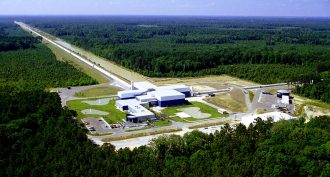 Physics
PhysicsGravity waves detected at last!
Albert Einstein predicted gravitational waves 100 years ago. Now scientists have detected them coming from the collision of two black holes.
-
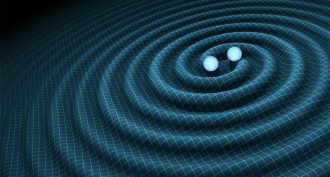 Physics
PhysicsExplainer: What are gravitational waves?
Albert Einstein had predicted that large catastrophes, like colliding black holes, should produce tiny ripples in the fabric of space. In 2016, scientists reported finally detecting them
-
 Animals
AnimalsWhy some penguin feathers never freeze
Oil and tiny pores prevent the feathers on some penguins from freezing. The discovery could inspire new ways to keep ice off of airplane wings.
-
 Space
SpaceNew recipe for monster black holes
The conventional idea for how black holes form would not easily allow for huge ones to develop in the early universe. Yet they did. Now a scientist offers a new view: galaxy mash-ups!
-
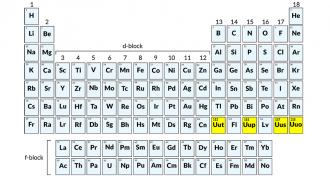 Chemistry
ChemistryNews Brief: 2016 brings four new elements
U.S., Russian and Japanese scientists have just been credited with official discoveries of elements 113, 115, 117 and 118. Next up: Naming them.
-
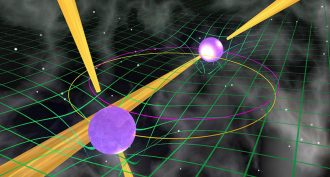 Physics
PhysicsZombie stars: A source of gravitational waves?
Scientists have found indirect evidence that the dense cores of dead stars are making ripples in space, known as gravitational waves. These waves have been predicted but never yet directly “seen.”
-
 Physics
PhysicsParticles that zip through matter snare Nobel
Two scientists won the 2015 Nobel Prize in physics for their discovery that neutrinos, particles that can pass through almost all matter, have mass.
-
 Physics
PhysicsStephen Hawking says his group has solved a black hole puzzle
Physicist Stephen Hawking says light sliding along the outside of a black hole holds the key to understanding what’s inside.
-
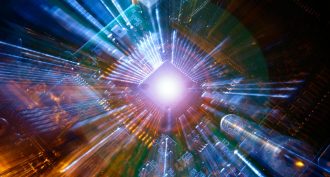 Materials Science
Materials ScienceLong-sought subatomic particle ‘seen’ at last
Physicists have finally caught a brief glimpse of massless subatomic particles that were first predicted to exist 85 years ago. It’s the elusive Weyl fermion.
-
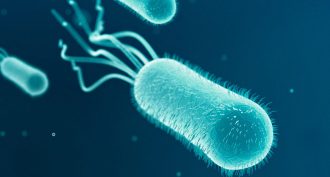 Physics
PhysicsBacteria help water effortlessly go with the flow
By adding bacteria to water, scientists were able to make a fluid flow with almost no resistance.
-
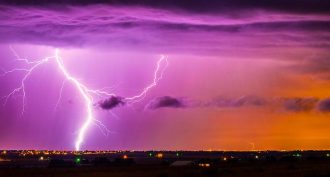 Climate
ClimateCosmic rays offer clues about lightning
Space particles called cosmic rays pelt Earth. Scientists are using the rain of these particles to probe how lightning forms.
-
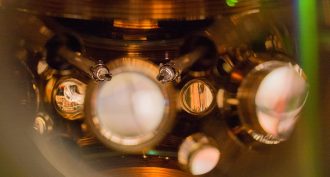 Physics
PhysicsNews Brief: As timely as it gets
A newly modified atomic clock won’t lose or gain a second for 15 billion years. This timepiece is about three times more precise than an earlier version.